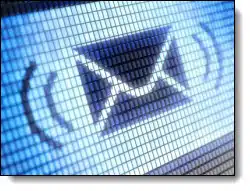Hi, Leo. Is it possible somehow to access the contents in the email folders in my desktop computer from my network laptop, which is setup with the same email account? The desktop is out of action for the moment but I’d like to check some emails. The operating systems are Windows XP and I’m running Outlook Express.
The default answer is no, particularly for what are likely the default settings in the scenario that you’ve outlined. But there are ways that if things are set up differently, the scenario can in fact be made to work, kind of.
First, if the machine isn’t working…
You mention that your machine is out of commission. I’m not sure what you mean exactly, but if the machine is not working well, then by definition, you will not be able to get at anything that is stored on that machine. If it’s just a matter of an internet connectivity issue? Unfortunately, things don’t really get any better.
Email programs assume
In general, email programs that you run on your PC assume that they have full control of their email folders that are stored on that PC. They also assume that they have exclusive access.
This means that in general, you cannot access the mail stored on one PC by running a program on another PC.
Sorry.
 Copying the folders
Copying the folders
Depending on the program that you’re using, you may be able to copy certain files across the network.
Naturally this assumes you have access to the original machine and from there, you copy those email files to the network. Microsoft Outlook’s PST files are a wonderful example of this. You copy one file, then you open it in Outlook on some other machine and everything is there: not just your email but your calendar, your journal, your notes, whatever you happen to use Outlook for.
You can also do this kind of thing with Thunderbird, which is a good program. There are ways to move your installation of Thunderbird from one machine to another simply by copying a specific directory tree in its entirety. It copies not only your email but your settings, extensions, and everything associated with Thunderbird.
Unfortunately, you cannot do this with Outlook Express, which to be completely honest, you shouldn’t be using anyway. I have an article called, “Why Outlook Express must die”, and I’m going to recommend you read that as well.
Removing the assumption
Given that PC-based email programs make these kinds of assumptions, the solution then is not to rely on the PC, but on your email server. That requires that you make changes “up front” before you reach this situation.
There are two approaches: one is to use IMAP rather than POP3. What this does is that it leaves all of your email on the server, and allows you to access it from multiple computers and other devices all at the same time. And all these devices will stay in sync: You delete an email on one machine and it eventually shows up as deleted on the other; that kind of a thing. This is how most mobile email apps work these days.
The other solution is to change your POP3 configuration to leave the messages on the server. This can be a reasonable backup; but accessing from multiple computers or devices can result in seeing the same message in each place, even when you think you’ve deleted it. It can get kind of confusing and frustrating if you often switch from one device to another.
In general, I recommend that you use IMAP if this is something that you see yourself doing a lot. I personally converted to IMAP a couple of years ago, and it’s wonderful because I can access all of my email on any one of the plethora of computers that I happen to be using.
Of course, the problem with both of these approaches is, as I mentioned, they are things you need to set up before you actually need them.
 Copying the folders
Copying the folders
I’m in a similar scenario to the OP. I recently installed Thunderbird on my laptop and set it up with IMAP. Now if I’m working on the laptop, I can check my email without having to go down to the basement to the desktop computer. Problem is, my wife might go check her email on the desktop computer and it will then download all my email from the server (she did this once while I was in the middle of reading my email and it disappeared).
So I’m thinking that I’m going to leave my long-term storage of emails in the Local Folders account of Thunderbird and move the Inbox to it’s own separate account so I can switch that to IMAP, so my Inbox and all my short-term saved mail will be available on the mail server and on either computer that I access it from.